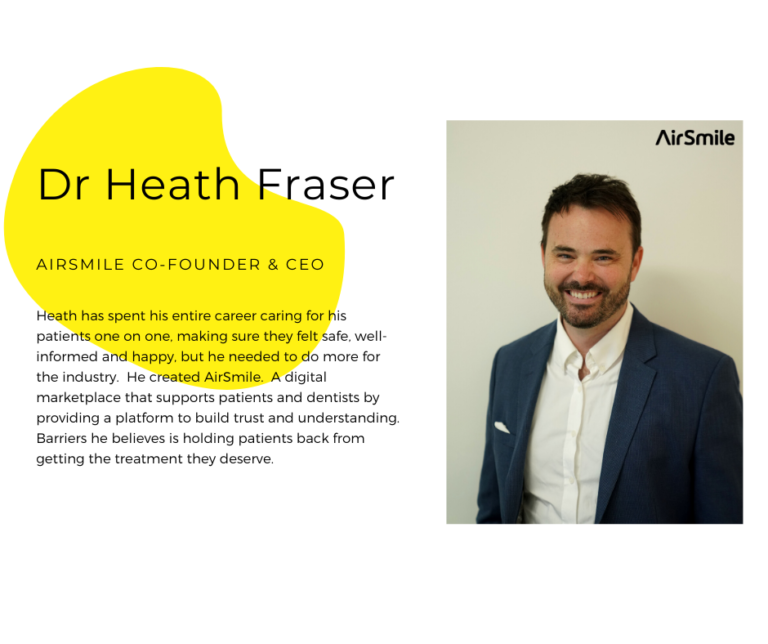As a dentist in private practice for the last 15 years, this is a question that is very common. Dentistry can be quite expensive especially if you find you need regular treatment on top of the normal dental check-ups and dental cleaning. There are some really good options out there to help you save, just beware of some of the pitfalls too!
Extras (and dental) cover works a little different from hospital cover, or other household insurance policies. People typically take out dental insurance to cover a large one-off event: a joint replacement, a motor vehicle accident, or house fire. Dental extras cover works in quite the opposite way. It will cap your rebate once you go over an amount – often termed an annual limit. Let’s say you need a dental implant due to falling over on an electric scooter and breaking a front tooth (yes… sadly a very common event!), your cost might be $6,000. Your dental insurance rebate will most likely be capped between $800 or $1200 if you’re covered at all for major dental services such as implants and crowns. This would leave you out of pocket around $5000, with no benefits left to claim for the remainder of the year – should you crash your scooter again.
I’m not saying this model is necessarily a negative. It can work to your advantage since you’ll get a financial rebate on your first dental bill (with the exception of any waiting periods), unlike other types of insurance which have an excess payable prior to receiving funds that will contribute to your overall expenses. The point I always aim to highlight to my patients is to be very aware of how health insurance policies work. Understand two things. One, that your annual rebates are capped, and often it’s no more than what you’ll pay in your annual premiums to have dental extras cover Two, any unclaimed benefit amounts remaining on your policy do not roll over into next years membership term. It’s a use it or loses it a system that can be easily overlooked in the fine print.
This is a weekly conversation my front office team has with confused patients who have enrolled in dental extras cover unaware that the system is set up this way. It’s easy to understand how people become disgruntled after years of paying premiums and then get little in return when they feel they need it most.
Another point to consider is that insurance companies need to make money. They in some cases answer to shareholders who are only interested in one thing – a return on their investment. Simply, this means that there is a profit in your monthly premiums. In fact, according to APRA, the health insurance industry receives close to 25 billion in revenue yearly, roughly 14% is profit! (https://www.apra.gov.au/news-and-publications/apra-releases-quarterly-private-health-insurance-statistics-for-march-2019
Be extremely careful to not be the customer who is contributing to this. There are always people who are complacent and time-poor however, it pays to do your homework before taking out health insurance and extras cover to make sure that’s not you!
Top 3 tips on how to get the most out of your dental insurance cover.
There are definitely ways to ensure you are getting value from dental extras cover however, you need to be smart and ensure the policy you have is best suited to you and your family’s needs and that you review annually to make sure you’re utilizing it.
Tip #1
- There are many policies now which enable you to receive your preventative care twice yearly with no out-of-pocket expense – this can be a huge win for a family.
Tip #2
- Some people only join a health fund for tax exemptions. This applies if you have hospital cover only, so you don’t need the extras as well. If you’re not taking advantage of the extras, ditch them and maybe stick with the hospital cover only.
Tip #3
- Certain insurance companies have preferred provider schemes set up with dentists. The dentists agree to set their fees at a certain level in exchange for the supply of more patients to them, directed by the health fund. These fees are usually lower, but also in some cases the rebate given to you is higher than from a non-preferred provider. Being ‘preferred’ is nothing to do with skill or service levels. It’s a financial arrangement that both parties typically benefit from. If you find a dentist you love who is in one of these arrangements, then you’ll certainly see better value being in that fund!
A word of warning here: I caution you on choosing a dentist purely by being preferred by your health insurance company, you should be chosen based on who you trust and love going to – perhaps switch your fund rather than a dentist.

There it is. A complex answer to what seems like a simple question from a patient eager to find ways to afford the dental care they want for a healthy happy smile. I hope this has helped in some way make you clear on what is right for you. If you’re looking for great value with or without dental insurance, feel free to try out our platform, you can search based on whatever you like to ensure you’re in control. You can even select the dentists who are in a preferred provider scheme for your health fund. Good luck!
Search for dentists aligned with your dental insurance
Find your match on AirSmile







